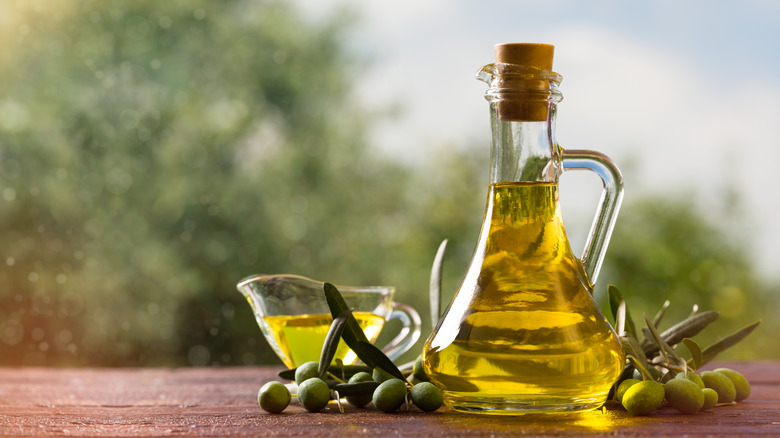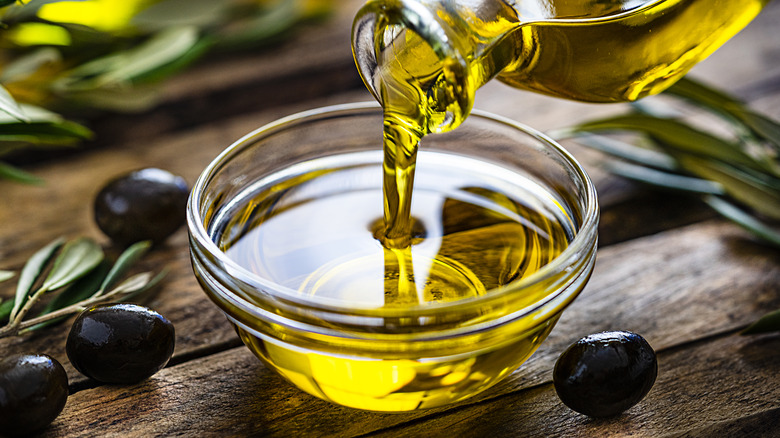Regular Vs. Extra-Virgin Olive Oil: What's The Difference?
It seems we're always grabbing for a bottle of "good" olive oil. For the most part, cookbook authors are referring to extra-virgin olive oil, the almighty elixir that sits a bit higher on the supermarket shelf than the regular version. But what exactly makes a bottle of EVOO so much more prized — and expensive — than its paler, more affordable brother?
The simple answer? Extra-virgin olive oil is made from pure, cold-pressed olives, whereas regular olive oil is a blend, including both cold-pressed and processed oils.
Extra-virgin and regular olive oil go through different processes
Extra-virgin olive oil is made by grinding olives into a paste, then pressing them to extract the oil. There's no heat involved, hence the "cold-pressed" label you often encounter. The resulting oil has a forest-green color; a grassy, peppery flavor; and a fruity aroma. This method, while effective, takes a substantial amount time. Certifying the product pure EVOO is also a rigorous, time-consuming process. These factors contribute to the oil's higher price.
Any cold-pressed oil that doesn't meet extra-virgin standards is then refined to get rid of undesirable impurities, giving the oil a more neutral flavor and lighter color. However, unlike with other oils, including canola, corn, and vegetable, the process does not involve chemical solvents. It's then blended with a bit of EVOO to produce what's labeled as just "olive oil."
Should you use extra-virgin olive oil or regular olive oil?
So how does all this affect your cooking? And which should you use when preparing a dish?
Well, we suggest keeping a bottle of both on hand: Plain olive oil for general cooking and sautéing and a nice top-shelf extra-virgin oil for dips, dressings, uncooked applications, and as a finishing touch for plated food. While you could technically use EVOO in all your cooking (the myth that it turns bitter at high temperatures has since been busted), you won't be able to taste its subtleties in something like a rich boeuf bourguignon. So when you need just a drizzle for your skillet, it's better to save your money by opting for its significantly cheaper cousin.


